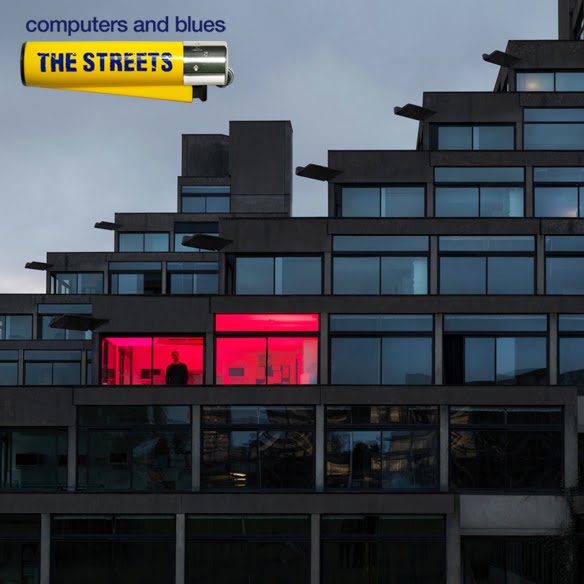Like with any artist that establishes an absorbing, solid persona early in their career, it’s hard to realize that Mike Skinner has grown up and turned out to be a kind of awkward, sad dude. Listeners are looking for that smart aleck from Skinner’s earlier albums, and he’s just not really there. There’s nothing more limiting for an artist than to be expected to perform to standards established in their youth: imagine being expected to write from a perspective you grew out of years ago. Nonetheless, it’s a nuisance that listeners cause. Maybe we become too attached to the character we first meet, or perhaps being grown simply isn’t as much fun as growing up. Skinner certainly doesn’t seem to think so. His material has gradually shifted from the witty, biting remarks of Original Pirate Material to semi-intellectual musings, which finally grew too prominent on Everything is Borrowed. It wasn’t the album’s sunnier outlook that was unwelcome; instead it was a simpler fact: Skinner wasn’t all that good at it. He’d pulled off “Dry Your Eyes,” but anti-suicide ballads and odes to loved ones (played straight) left the man in waters unknown.
So, it was easy to think, “Hey, he’s just finding his way.” Growing up is — to say nothing of hard — damn awkward, so if Borrowed was the first record coming from a grown Skinner, then who’s to judge a confused result? Of course, this still leaves the grander issue: as to whether the adult Skinner can keep an audience. He himself may not think so, seeing as this is supposedly The Streets’ retirement package. Nonetheless, with a barrage of online releases, Skinner built up anticipation and hopes for Computers and Blues.
Freed of hype, the album itself — as the title immediately suggests — deals with the confusion inherent in a technology-soaked world. We’re all modernists and romantics, pious and forward-thinking, and Skinner can’t find a balance. A sort of slight OK Computer, you could say. It’s certainly a record rooted in all the constant updating, complete with a facebook-driven love song. The record is a bit of a sad affair. Skinner’s punch lines don’t often hit quite like they used to, he sounds tired. Yet, this same fact represents much of its appeal.
Skinner started making music at the age of fifteen, finally he found his way into our speakers, and we spit him out like this. If his thinking is at times heavy-handed (see: “You can’t Google the solution to people’s feelings”), well, at least he’s thinking. A silly thing to claim, perhaps, but Skinner’s clumsiest line means more than 95% of what hits the radio. There are bright moments (“Without Thinking” has the potential to start a good night for even the shyest man living), but this is very much an album generated by the era of the ambiguous. The truth is, it’s an album that hits about 50% of the time, but Skinner ends what may be the last album of his career with the line, “I never stood up for what I wanted to do.” Try and say that there isn’t something brilliant in that. Something beautiful. This may be a confused record, but it finds its place through a universal truth it manages to hit: so Skinner can’t quite find his way in this world: who among us can?

